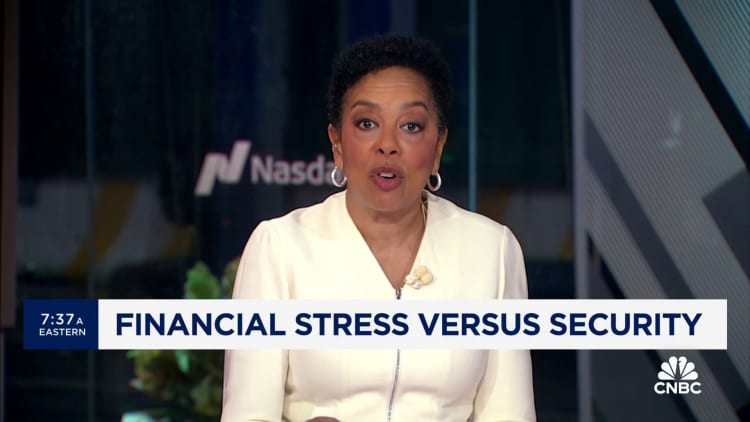Jamie Grill | The Image Bank | Getty Images
Higher interest rates may be here to stay for a while longer, thanks to persistent inflation.
That’s good news for cash savers, who have the best opportunity to earn returns on their money in 15 years.
What’s more, prospective yields on those investments — whether through liquid savings or timed deposits such as certificates of deposit — are also well above inflation, noted Greg McBride, chief financial analyst at Bankrate.
“It’s a good time to lock in,” McBride said.
To secure today’s high rates, individuals may turn to CDs, Treasury bills and Treasury Inflation-Protected Securities, or TIPs.
Series I bonds — a U.S. government savings bond aimed at providing inflation protection — will pay 4.28% for the next six months, the Treasury Department announced Tuesday.
More from Personal Finance:
Treasury Department announces new Series I bond rate
Why new home sales inch higher despite 7% mortgage rates
Don’t believe these money misconceptions
While that’s down from a peak of 9.6%, today’s I bond rates have an advantage in that they provide an after-inflation return, according to McBride. The new 4.28% interest rate effective through October includes a 1.3% fixed-rate portion, which has formerly been as low as 0%.
Of course, many of the mentioned investments require savers to stay put for a specified time period and may require some funds to be forfeited if they are cashed in early.
Online high-yield savings accounts provide more flexible terms for accessing cash and still have top annual percentage yields of 5% or more.
Yet 67% of Americans are earning interest rates below that threshold, according to a recent Bankrate survey.
Consider when you need the money
When choosing between locking in returns on cash or finding a better rate on a liquid savings account, the timing of your goals should be your priority.
“The fundamental determinant is, ‘When do you need the money?'” McBride said.
Ask yourself whether you need to have access to your cash at a moment’s notice or whether you can afford to lock it up for multiple months or years, he said.

For investors who have ample cash, it may make sense to break up deposits among online savings accounts, short-term CDs and even long-term CDs or Treasury notes, said Ken Tumin, senior industry analyst at Lending Tree and founder of DepositAccounts.com.
“No one really knows where interest rates are going to fall,” Tumin said. “So you can try to kind of hedge your bets.”
However, for savers without much savings, a high-yield online savings account still makes the most sense, he said.
All savers — regardless of deposit size — should make sure their deposits are properly insured by the Federal Deposit Insurance Corp., if deposited with a bank, or the National Credit Union Administration, if deposited with a credit union.










